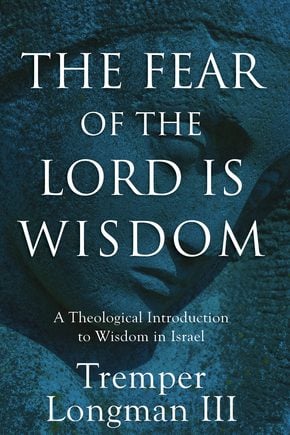 Wisdom in the Old Testament is seen by many as an Island Unto Itself. That is, Wisdom is not connected to covenant, to law, or to prophecy. It is secular, it is universal, it is non-redemptive, it is observational and experiential and open to anyone who ponders creation and the way of humans in the world.
Wisdom in the Old Testament is seen by many as an Island Unto Itself. That is, Wisdom is not connected to covenant, to law, or to prophecy. It is secular, it is universal, it is non-redemptive, it is observational and experiential and open to anyone who ponders creation and the way of humans in the world.
Wisdom, then is a fourth option for apprehending God’s ways for God’s people. As Tremper Longman, in The Fear of the Lord is Wisdom, says,
The more universal appeal of wisdom is often located positively in the relationship between Israelite wisdom and the wisdom of the broader ancient Near East (see chap. 9), and negatively in the absence of references to redemptive history in favor of a creation theology (see chap. 8) as well as an absence of priestly theology. In addition, some scholars posit a distance from the important concept of the covenant and the legal component within it. Brown, for instance, asserts that “whether apart or together, the wisdom books cannot be shoehorned into Israel’s . . . covenantal traditions.”
Is that so? Is Wisdom so far removed from covenant and law and prophecy that it is an island? Tremper offers a solid challenge to this isolation of wisdom and, hence, offers a more unified way of perceiving how the Old Testament major themes — law, covenant, and wisdom — cohere.
Longman does what is needed: he sketches covenant in the Old Testament.
Adam: creation without a sign.
Noah: re-creation with the sign of the rainbow.
Abraham: promise with the sign of circumcision.
Moses: law with the sign of Sabbath.
David: kings without a sign.
New Covenant promised by Jeremiah.
Leading then to a sketch of covenant as treaty, with the Deuteronomic covenant as a vassal treaty. Then to showing how important themes of wisdom appear also in covenant and law. Here are the important connections Longman makes:
Covenant is connected to law since all covenants have laws.
Covenant law is connected to rewards and punishments.
Wisdom is connected to rewards and punishments.
Wisdom is connected to law and covenant.
It looks like this:
The law of the OT expresses God’s will for how his people who love him should live. … When we turn to the book of Proverbs, we again have material that expresses God’s will for how his people who love him should live. … These proverbs begin with an imperative, instructing, even commanding, the listener to adopt a certain attitude or behavior, similar to the intention of the law. … Law and wisdom are closely tied in yet another way. Obeying the law and living according to wisdom leads to reward, and disobedience to law leads to punishment. This point brings us to consider the relationship between wisdom and covenant. … In noting the connection of law/wisdom with covenant, we follow in the footsteps of Meredith Kline, who argued that the whole of Scripture, all its parts, relate to the covenant between God and his people. In regard to wisdom he states, “The central thesis of the wisdom books is that wisdom begins with the fear of Yahweh, which is to say that the way of wisdom is the way of the By noting a connection between “fear of the Lord” in wisdom and covenant, Kline makes a connection with not only proverbial wisdom but also the wisdom of Job and Ecclesiastes, where we have seen that the “fear of the Lord” is also the central concept.
This text in Deut 4:5-8 establishes a vital connection:
See, just as the Lord my God has charged me, I now teach you statutes and ordinances for you to observe in the land that you are about to enter and occupy. You must observe them diligently, for this will show your wisdom and discernment to the peoples, who, when they hear all these statutes, will say, “Surely this great nation is a wise and discerning people!” For what other great nation has a god so near to it as the Lord our God is whenever we call to him? And what other great nation has statutes and ordinances as just as this entire law that I am setting before you today?
In the OT, law is embedded in a covenant/treaty context, as are the reward: and punishments that flow from obedience or disobedience. Proverbial wisdom like law in that it also can be considered stipulations of the covenant/treaty that also has sanctions.











